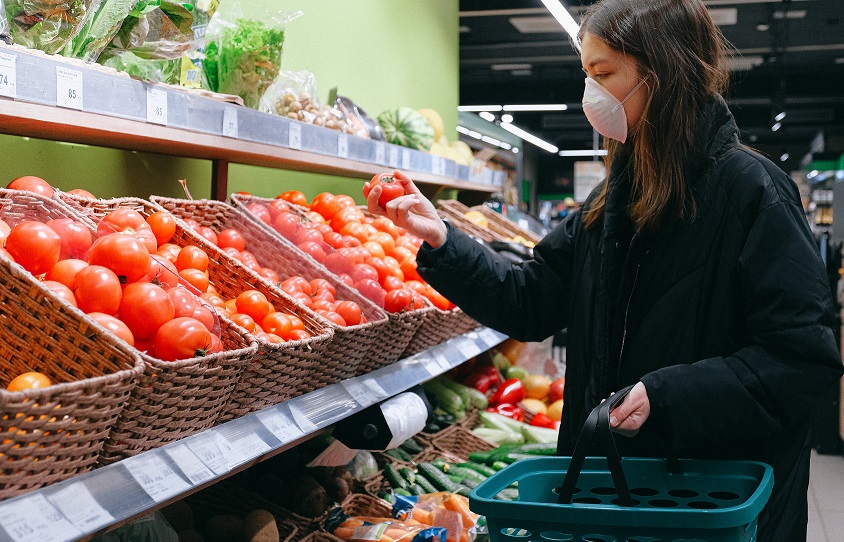
The unknown unknown (things we don’t know that we don’t) novel coronavirus coined as Covid-19 was not seen coming from anyone. It is an exogenous shock affecting the fundamentals of the world economy. The health turned economic crisis will have a pivotal economic fallout, affecting the demand and supply chain. According to the IMF, we have already entered a recession that will be worse than 2009. The human cost of the pandemic is increasing at an alarming rate, and the priority of the nations is to keep their people safe and healthy. It is a wake-up call for the entire world which needs to strengthen its public health infrastructure by building long-term investments for stronger and resilient public health systems. The relationship between the Covid-19 mortality rate and per capita GDP is positive and significant. Thus, it is important to develop an alternative understanding of this, especially for poor countries.
Economic fallout:
Supply perspective: A decline in the labor supply and capacity utilization for lockdown and quarantines has disrupted the global supply chain. Services and manufacturing have declined drastically with services hit much harder than manufacturing. This has increased business costs and inducted economic activity with negative productivity shock. Firms are expecting lower demand for exacerbating consumer and business sentiments. This reduces investment and spending leading to business shutdown and job losses. The banks will then suspect the inability of firms and consumers to repay their loans timely, which can increase the borrowing cost and tighten financial conditions. This reduced credit will escalate the downturn of demand and supply shocks. The international trade and financial linkages can synchronize the shocks, dampening the economic activity, and reducing commodity prices. Oil prices have also fallen sharply by around 30 percent from their initial price at the start of the year.
Demand perspective: The contagion fear, increased uncertainty and loss of income make people spend less. Firms cannot pay salaries and thus lay off their workers. Thus, the disposable incomes of the household will fall. The airline industry can go bankrupt by May 2020 as their stock prices fell in line with the 9/11 terror attacks, due to declining demand. Countries relying on external financing will face a sudden stop, which can disorder the market conditions. The Marginal Propensity to consume will fall due to lower consumer confidence, and this will reduce the multiplier. With the reduction of MPC, the infusion of money in the economy will not add to the national income if the MPC has disproportionately fallen.
What
can be done?
Fiscal stimulus can shield the economic damage. It can be on a range of policies which should immediately prioritize health spending. Businesses and households hit by a drop in demand and supply, can get wage subsidies, direct cash transfers and tax reliefs, helping people to stay buoyant. This also brings us to the sheer truth of the large unorganized sector of various developing (India) and under-developed (Africa) countries who face difficulties in enjoying such a stimulus package. Thus, it teaches us a lesson to bring people under the organized sector with employment protection. The government can also enhance unemployment insurance, and wave off social security conditions for businesses.
Monetary stimulus by central banks should impart liquidity to banks and nonbank financial companies, particularly the MSMEs. Temporary extension of loan maturities in the financial market on a time-bound basis can protect businesses from sharp disruption. Policy rate cut and asset purchases can lift the confidence of the financial market. An easing of financial conditions such as the flow of credit in the economy can support demand. Many major central banks have eased swap lines to reduce the stress of global financial conditions.
In their book Good Economics For Hard Times, Banerjee & Dufflo (2020) have written on what the social scientists call a natural experiment: influenced by nature or factors beyond the researcher’s control. They’ve cited an evidence-based study on the difference between the lifestyle of people before and after the volcanic eruption in Iceland. Similarly, nature has thrown the dice of this virus and, we have to wait and see the difference between an ex-ante and ex-post world. But certainly, there will be an imperative difference afterward.
Samridhi is public policy enthusiast who believes in one step at a time approach for sustainable development. She is a graduate in Economics honours from Daulat Ram College, Delhi University and currently a Post Graduate Diploma student of Economics at the Meghnad Desai Academy of Economics, Mumbai. She was Editor-in-Chief at The Economics Society, Daulat Ram College.